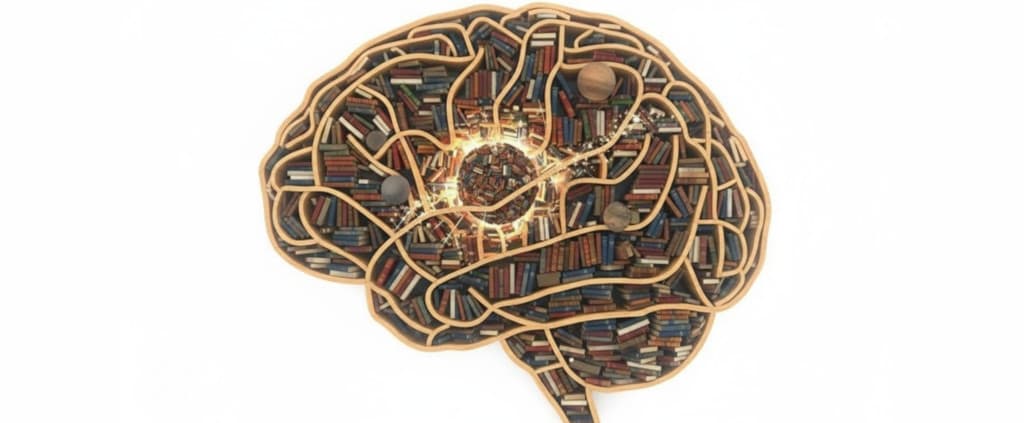So called bibliotherapy is “an accessible, cost-effective strategy to increase access to mental health care”. Many doctors and researchers consider it a valid tool for stress reduction and emotional wellbeing.
Research Findings
Multiple studies confirmed that reading can genuinely help lower stress levels and improve mental well-being. For example, a research team led by Shanshan Wang from The Hong Kong Polytechnic University conducted a randomized controlled trial among caregivers of people with dementia. They tested a form of e-bibliotherapy — digital reading of specially selected texts. The results showed that participants who read regularly had reduced cortisol levels (the stress hormone) and reported better emotional balance.
Another study by Dr. Martina Scholtens, published in the British Columbia Medical Journal, summarized clinical observations in psychiatry and concluded that reading can serve as a “high-quality, low-cost therapeutic support” for patients. In other words, it’s not a replacement for psychotherapy but an effective supplementary tool for reducing anxiety.
Meanwhile, in the UK, researchers A. Phul and colleagues from the Well-being Through Reading project under the NHS examined how book clubs and community reading programs affect mental health. They found that simply reading in a library or discussing books with others increases life satisfaction and reduces feelings of isolation.
From a neurophysiological perspective, reading activates brain areas related to empathy, imagination, and self-reflection. It allows us to experience another person’s emotions and understand our own more clearly. This explains why even a few pages before bedtime can ease tension after an information-heavy day.
Overall, most modern studies confirm that reading has a measurable positive impact on mental health, even though it does not replace professional therapy. Still, as a simple and reliable way to reduce stress in an increasingly fast-paced world, a book remains one of the most effective tools available.
The Hidden Trap of Bibliotherapy — And How to Avoid It
We also want to talk about the fact that not everything related to reading has a therapeutic effect. There are a few traps anyone can fall into. That’s why we decided to highlight them — and remind you to use common sense, just as you would with any wellness practice. After all, the goal is simple: to feel better.
Information Overload
We read too much — news, social media, guidebooks. And it only fuels anxiety. Basically, you need to understand that not all reading is therapeutic. A novel before bed is better than another productivity book.
Emotional Burnout
You shouldn’t try to “fix” burnout by reading instead of simply resting. If your work involves constant studying or mental effort, you need a literary detox from time to time. At the very least, give yourself 30 minutes of quiet reading before bed — with no phone nearby.
Trouble Focusing
Did you know that regular reading actually retrains your brain to focus? Constant digital stimulation — scrolling, notifications, multitasking — weakens our ability to stay with one thought. Opening a book creates the opposite effect: it slows the mind down, builds attention span, and restores the mental calm we lose online.
Wrong Books

Not every book heals. Many of us reach for thrillers when we’re already tense, or classics so demanding they only add pressure. When you’re drained, choose something light and steady. When anxiety spikes, find stories with calm pacing and gentle rhythm. Reading shouldn’t amplify your emotions — it should steady them.
‘Not Reading Enough’
If you set goals like “read 50 books a year” and then feel guilty when you don’t. You are not alone, many people do this. But therapeutic reading isn’t a competition. What matters is not how much you read, but how deeply you experience it.
Books for Different Moods
The right book can work like a mood switch — calming a racing mind, lifting heavy thoughts, or bringing back a quiet smile. If you want to slow down and steady your thoughts, try “The Wind in the Willows” by Kenneth Grahame — its gentle rhythm and countryside imagery can soothe even the busiest brain. When you need something to spark joy, David Sedaris’s “Me Talk Pretty One Day” delivers laughter in small, sharp doses — perfect for light emotional resets.
If you’re feeling lost or anxious about the future, “The Alchemist” by Paulo Coelho offers a simple but grounding reminder about direction and purpose. For those struggling to fall asleep, “The No. 1 Ladies’ Detective Agency” by Alexander McCall Smith is soft, slow, and kind — the kind of storytelling that lowers your pulse. And when you feel emotionally flat or burned out, reach for “Tuesdays with Morrie” by Mitch Albom — a tender read that reconnects you to what really matters.
